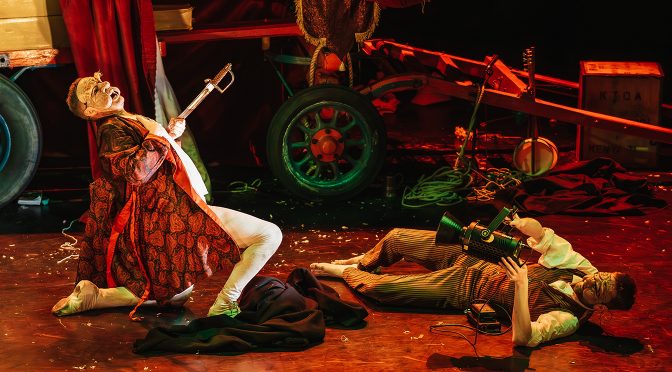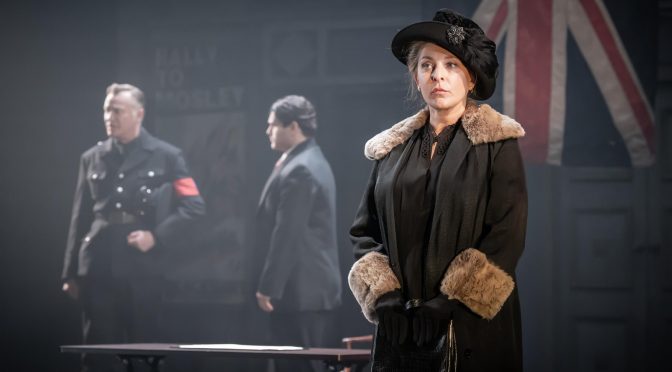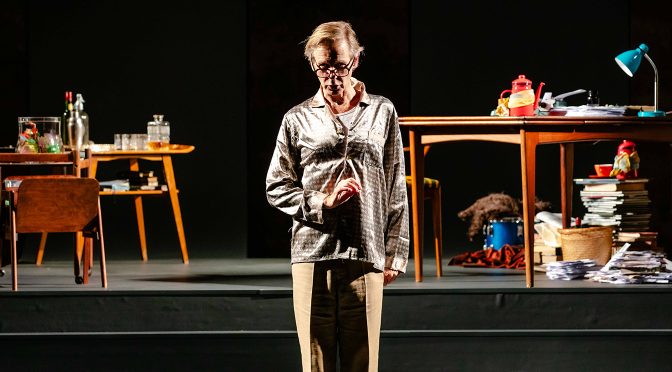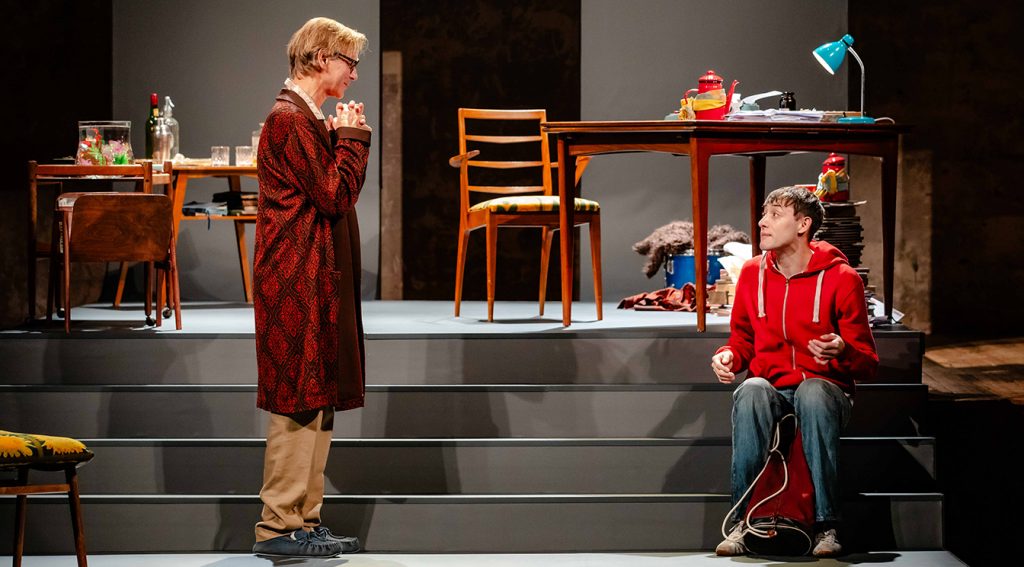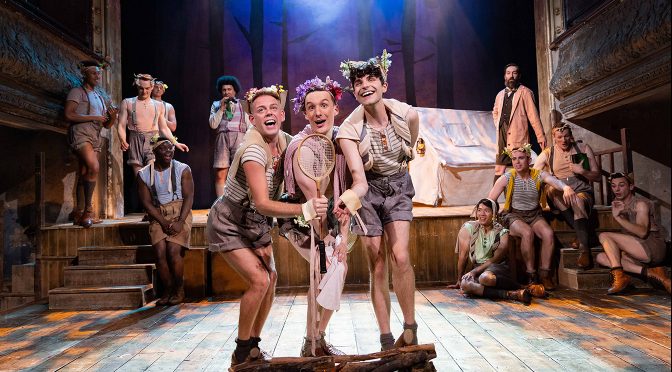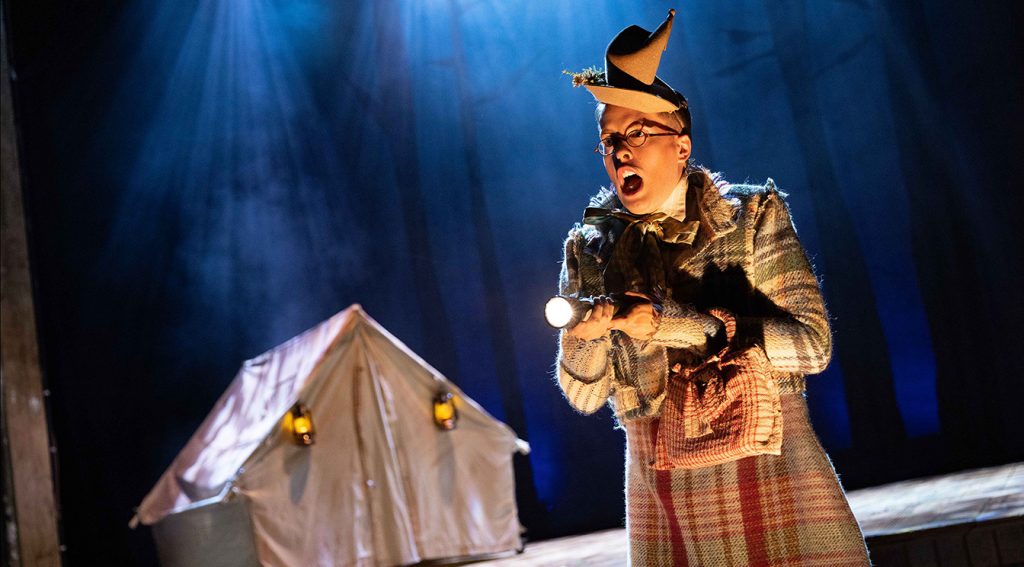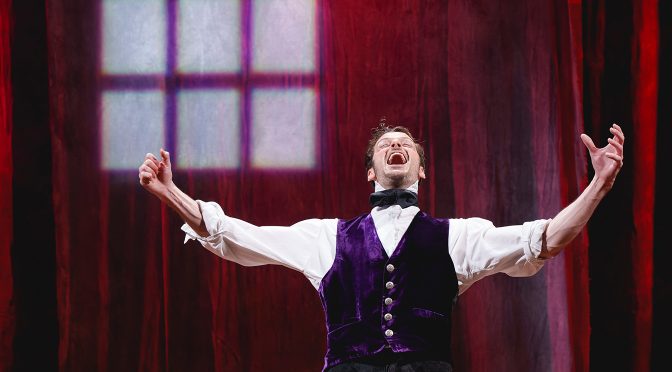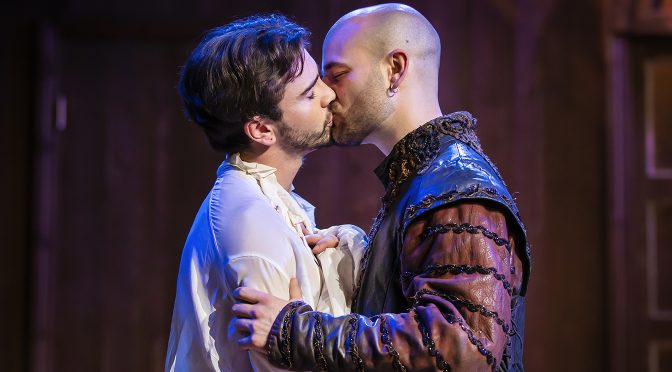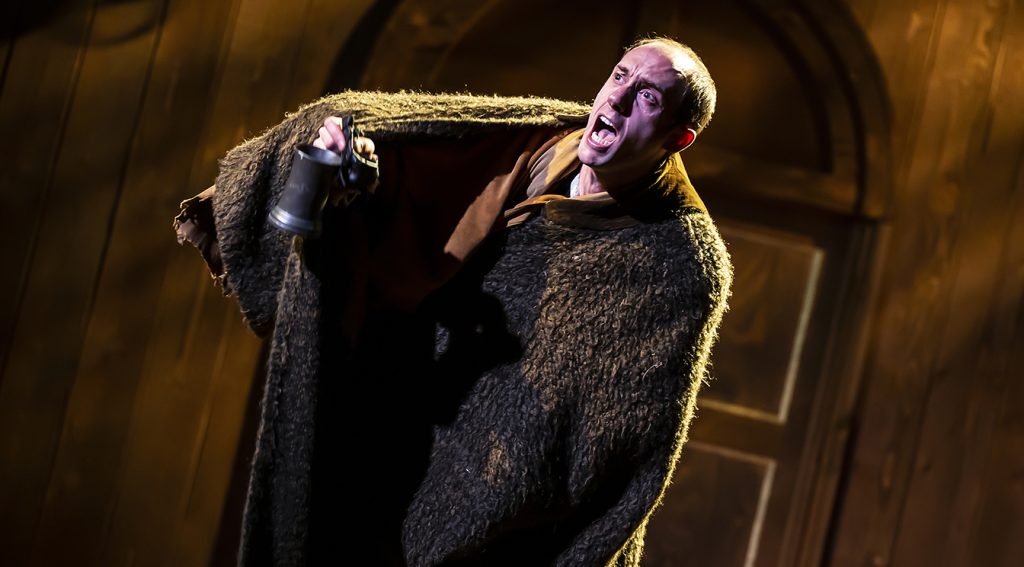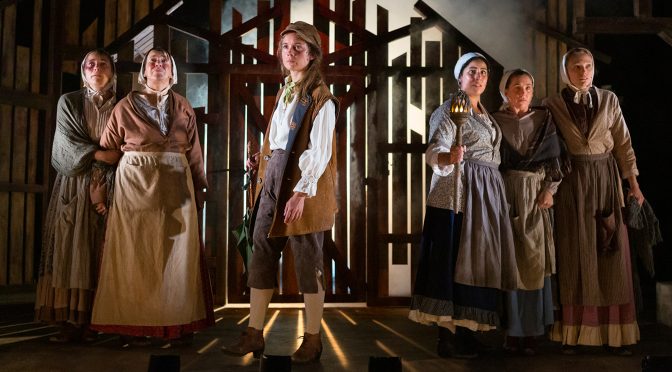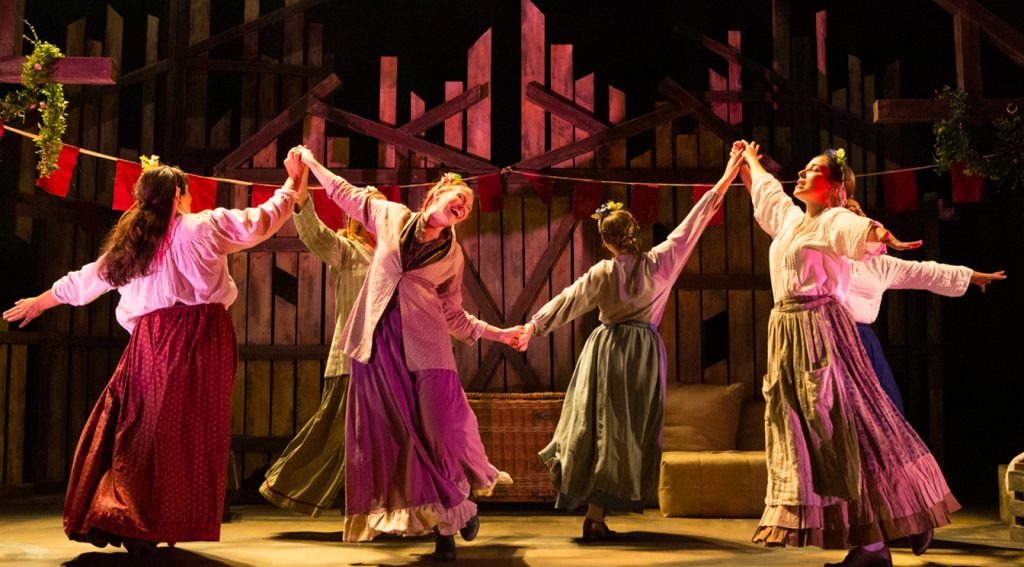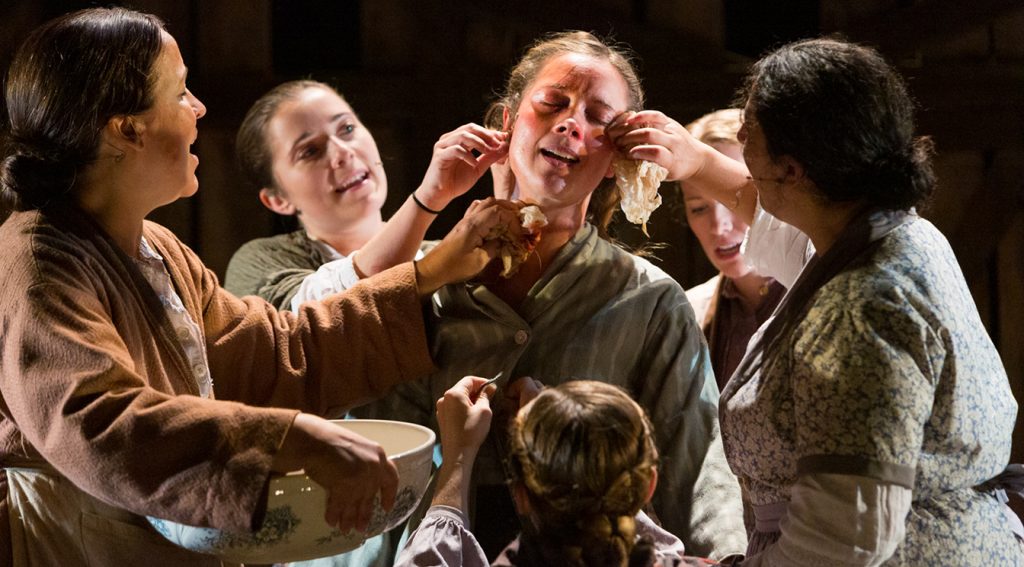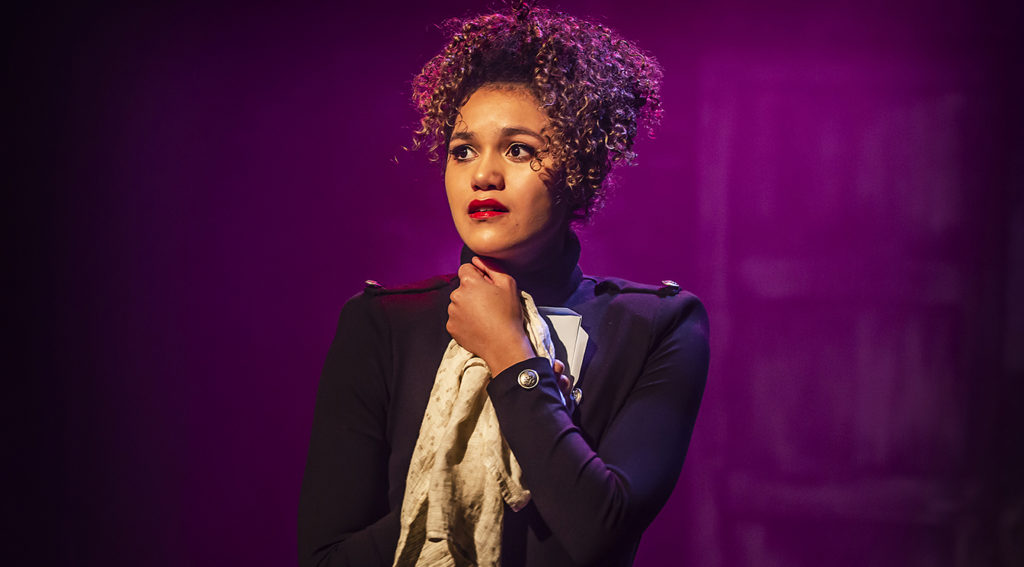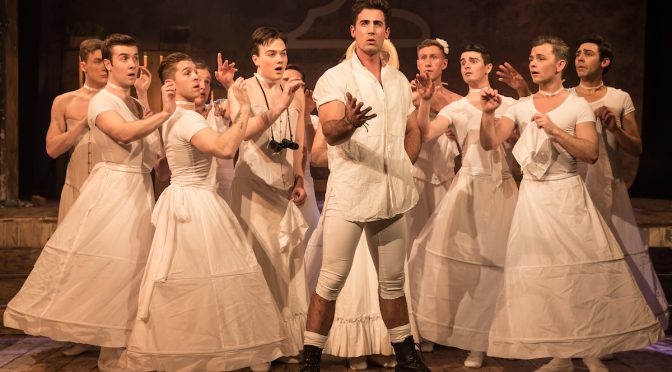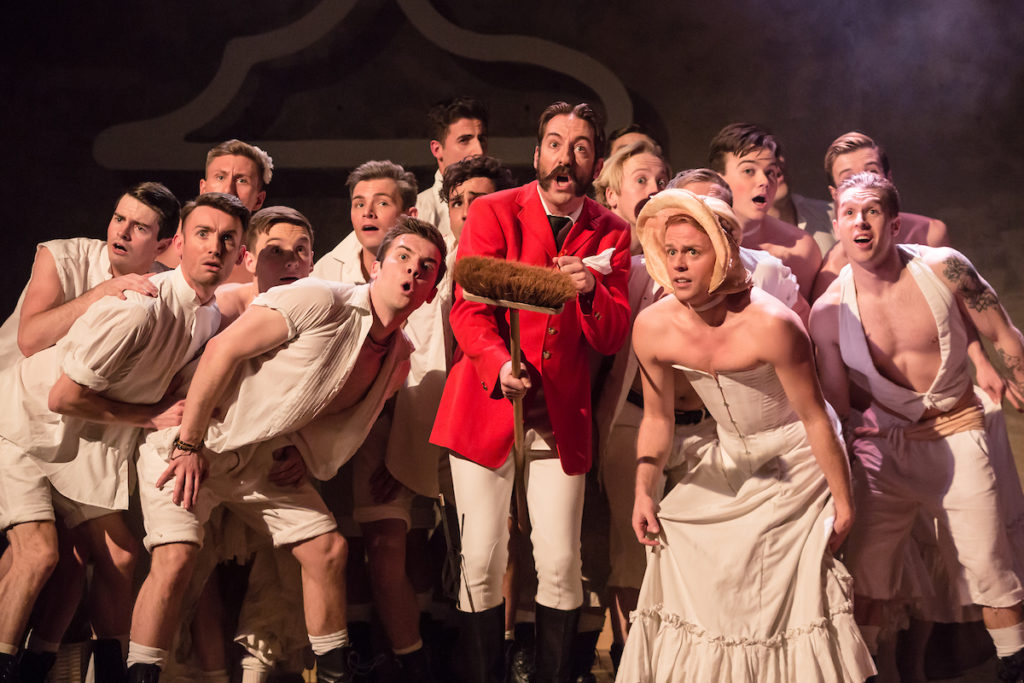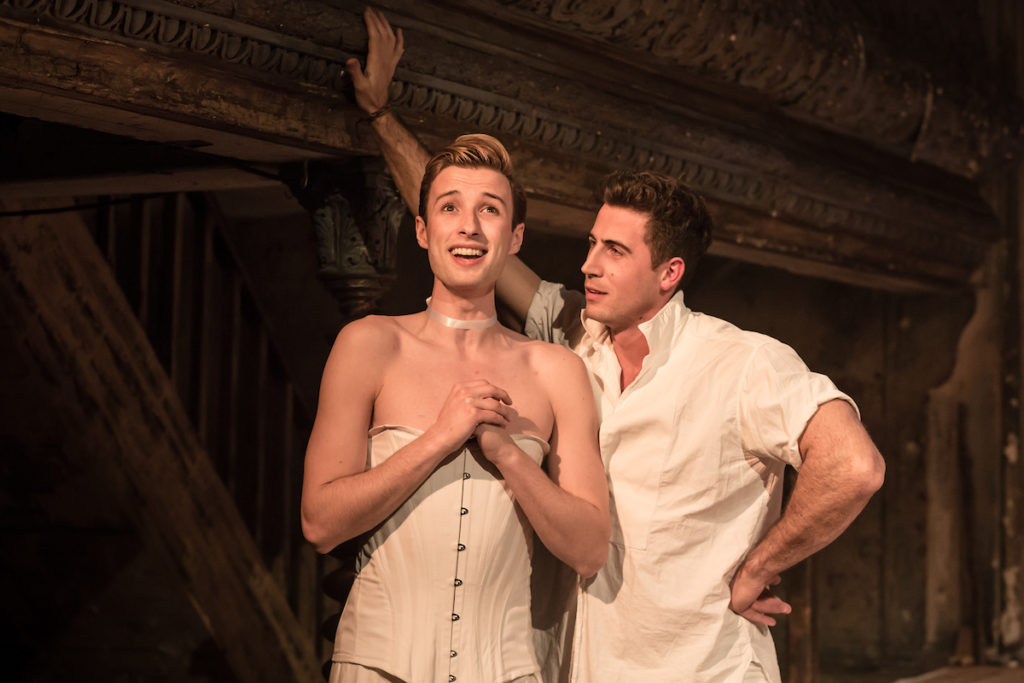If you saw Flabbergast Theatre’s production of Macbeth last year, its new show should interest. The company has plenty of energy and ambition. And seeing how its emphasis on movement works with a Shakespearean comedy, rather than a tragedy, is intriguing. Regrettably, the result is disappointing.
Nearly everything about the show is exaggerated. There’s no doubting the commitment this entails. Every movement, each gesture, all the lines, are deliberately stylised. The cast of eight dance and clown around the stage. It looks exhausting. Declamatory all of the time, they shout most of the lines, or lean into odd pronunciation. The effort is incredible. But what is the outcome?
The first to suffer are the play’s quartet of Athenian lovers, whose story is robbed of romance and becomes unbalanced. Elliot Pritchard and Nadav Burstein, as Lysander and Demetrius, dominate Helena and Hermia, played by Vyte Garriga and Paulina Krzeczkowska. At times, their fighting drowns out all dialogue. Director Henry Maynard presumably wants to emphasise comedy – and there are laughs – but the jokes are limited and repetitious, a fault that runs through the whole production.
Next, the fairies. We can at least hear Titania clearly, as Reanne Black delivers her lines well. There’s also puppetry – a collection of skulls used to good effect. Krystian Godlewski’s Oberon has his moments; presenting a majestic figure as part-animal part-child is interesting (I’m less keen on the mankini and the stilts). Meanwhile, Lennie Longworth makes an appealing Puck. Both performers have a physicality and vocal skills that impress. But all the aggrandisement distracts, grates and, finally, becomes monotonous.
Of course, everyone takes multiple roles – they really do work hard. And when it comes to the amateur actors staging their own play (wearing masks throughout), the transformations are remarkable. Taking the lead and giving it his all is Simon Gleave as Bottom. But while it’s clear that the style of the show suits the character, you might guess the problem coming. We’ve already seen so many wild gestures and heard so many strange noises that it is hard not to get tired of them by the time Bottom is in the (literal) spotlight.
Gleave also performs as a grotesque Egeus. With Theseus and Hippolyta ditched, he is the sole authority figure. Maybe…the idea is that there isn’t a contrast between the characters. That all the roles – lovers, fathers, kings and queens, are performative. This might also account for how much miming and mimicking goes on. It’s not just the mortals who are fools here. But that’s just a guess. The overall impression is confusing, as if a technique has been pursued regardless of how funny or engaging it really is, or what it might add to the play.
Until 20 April 2024
Photo by Michael Lynch

